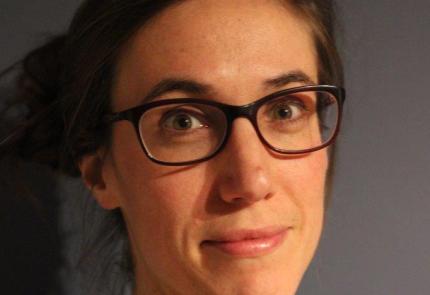As a specialist midwife in perinatal mental health at the Rosie Hospital in Cambridge, I was looking for research opportunities that would allow me to take my first steps in clinical research. I had been asking here and there how to get started, but often got the same answer: “Have you got any publications?” It seemed strange to me, as a midwife with several years of clinical experience but no research track record, to only be able to start my research journey if I already had done so? Or was I missing something?
One of my colleagues told me about the NIHR ARC Fellowships (previously known as CLAHRC) as a good option and with little confidence, but her enthusiastic support (thank you Nikolett!) I applied in the summer of 2019 for an NIHR ARC East of England Fellowship. I was really excited (and somewhat surprised) to be awarded a Fellowship and started the programme in January 2020, along with seven other clinicians from as many different disciplines.
The NIHR ARC fellowships are a wonderful opportunity for early career clinical researchers. The ARC Fellowship offers one year of monthly workshops on different research topics, monthly coaching sessions, and one day a week allocated research time, for which your (NHS) employer receives backfill. During these workshops and the coaching sessions, you get to know the other fellows, often leading to inspirational discussions and words of encouragement. The ARC East of England also provided a local supervisor at the University of Cambridge to support me with my research project.
However, just when I was on track to submit to HRA and the ethics committee, Covid-19 threw spanners in the works. My research days were paused, and I was – as so many clinicians - redeployed. It also meant recruitment for my initial research project was no longer possible. Confronted with a surge of anxiety in the pregnant and postnatal women in our care, I wondered if there were other opportunities for research and I contacted Professor Louise Howard at the Section of Women’s Mental Health at the Institute of Psychiatry, Psychology and Neuroscience (IoPPN), King’s College London. Shortly after, I found myself sitting (virtually) together with Prof Louise Howard, Prof Jane Sandall, and their team at King’s to discuss my role in a new research project into experiences with maternity care during the Covid-19 pandemic.
ARC East of England was so generous to extend all ARC Fellowships for another year, as many of their fellows had to put their projects on hold. The extended Fellowship meant I could be seconded to ARC South London, while receiving supervision from Sergio A. Silverio and Dr Abigail Easter at King’s College London. In these last months, I have been contributing to the Changing Maternity Care project, doing virtual qualitative interviews.
This study aims to understand the experiences of both women who gave birth during the first lockdown and the healthcare professionals who were providing maternity care in these unsettling times. The women we interviewed all gave birth during since March and were asked to reflect on what this had meant to them: How Covid-19 changed their maternity care during pregnancy, labour and birth, and the postnatal period; what changes had worked well, and what didn’t. We asked similar questions to a wide range of healthcare professionals in maternity settings, from midwives, obstetricians, health visitors, to sonographers, and obstetric anaesthetists.
We are currently undertaking the analyses of these interview data, but it has already become clear that the women’s experiences and those of the healthcare professionals are often diametrically opposed. One common theme which has shone through already is the concern about absence of birth partners at critical times. We are writing up our findings over the next couple of weeks, in order to contribute to wider policy recommendations moving forward.
